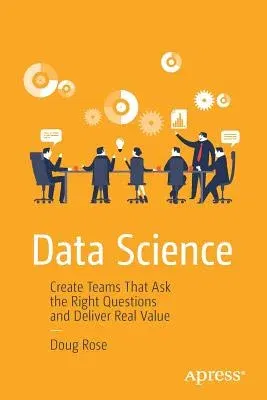Learn how to build a data science team within your organization rather
than hiring from the outside. Teach your team to ask the right questions
to gain actionable insights into your business.
Most organizations still focus on objectives and deliverables. Instead,
a data science team is exploratory. They use the scientific method to
ask interesting questions and run small experiments. Your team needs to
see if the data illuminate their questions. Then, they have to use
critical thinking techniques to justify their insights and reasoning.
They should pivot their efforts to keep their insights aligned with
business value. Finally, your team needs to deliver these insights as a
compelling story.
Insight!: How to Build Data Science Teams that Deliver Real Business
Value shows that the most important thing you can do now is help your
team think about data. Management coach Doug Rose walks you through the
process of creating and managing effective data science teams. You will
learn how to find the right people inside your organization and equip
them with the right mindset. The book has three overarching concepts:
-
You should mine your own company for talent. You can't change your
organization by hiring a few data science superheroes.
-
You should form small, agile-like data teams that focus on delivering
valuable insights early and often.
-
You can make real changes to your organization by telling compelling
data stories. These stories are the best way to communicate your
insights about your customers, challenges, and industry.
What Your Will Learn:
-
Create data science teams from existing talent in your organization to
cost-efficiently extract maximum business value from your
organization's data
-
Understand key data science terms and concepts
-
Follow practical guidance to create and integrate an effective data
science team with key roles and the responsibilities for each team
member
-
Utilize the data science life cycle (DSLC) to model essential
processes and practices for delivering value
-
Use sprints and storytelling to help your team stay on track and adapt
to new knowledge
Who This Book Is For
Data science project managers and team leaders. The secondary readership
is data scientists, DBAs, analysts, senior management, HR managers, and
performance specialists.


